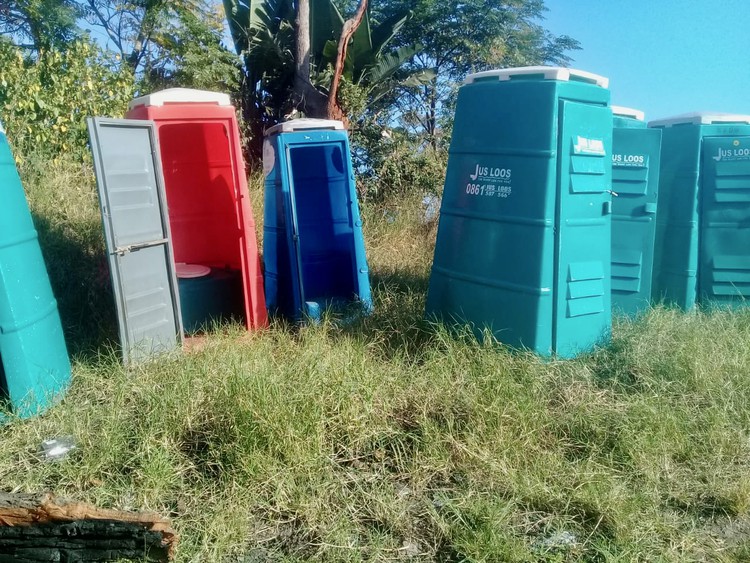Residents thank Covid-19 pandemic for sanitation
After 23 years using a pit latrine, community gets chemical toilets
Chemical toilets delivered to 307 Avoca Road informal settlement. For 23 years residents only ever had one pit latrine. Photo: Nokulunga Majola
Residents of 307 Avoca Road informal settlement have been digging pit latrine after pit latrine for 23 years. But this month they received six chemical loos.
Residents believe that if it wasn’t for the Covid-19 pandemic, they would still be sharing a single pit toilet.
The settlement, on private land, has 11 shacks and a burnt out house where some people are also living. There is no tap water, but residents have connected electricity illegally.
Shortly after national lockdown in March, Mayor Mxolisi Kaunda had said informal settlements would get tanks and toilets. Residents don’t understand why they were left out for months.
Zolani Khuzwayo, who was born in this informal settlement 24 years ago, says life has not been easy.
“We all [over 20 people] shared one pit toilet and when it was full, we will dig another,” he said. “If it wasn’t for the coronavirus pandemic, I don’t think we would have these toilets.
“When chairpersons of Mandeni and Mathambo informal settlements visited us, we didn’t think much of it. I am glad they did, because now more people know about us. They got the PR councillor to come to the settlement and she managed to get us these toilets. I know more good things are going to happen for us,” said Khuzwayo.
Ward 34 PR Councillor Phindile Ndlela (ANC) said, “[Previously] I wasn’t aware that they don’t have water and toilets. Ward 34 is my ward and when people approach me with a request, I have to do my best to make sure that I deliver.”
Resident Fezeka Cokoto says the last few months have been the most difficult time of their lives.
“Since we are using water illegally, we cannot fetch water during the day because one of the neighbours reports us to the police,” she said.
Water is collected by illegally connecting to the municipal supply.
“We need water and since we don’t have it connected here, we don’t have a choice. We have to steal it,” said Cikoto.
© 2020 GroundUp.
This article is licensed under a Creative Commons Attribution-NoDerivatives 4.0 International License.
You may republish this article, so long as you credit the authors and GroundUp, and do not change the text. Please include a link back to the original article.



